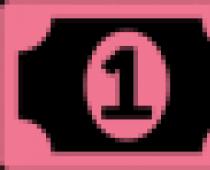Laser vision correction is the most modern and effective method of correcting defects such as myopia (myopia), astigmatism or hyperopia. Laser eye surgery is a real breakthrough in ophthalmology, the essence of which is reduced to an instant and painless correction of eye refraction. The application of the procedure allows you to change the shape of the cornea so that the image of objects focused on the retina of the eye. Modern methods make it possible to return good vision and save the patient from wearing glasses or contact lenses.
Often we see that this does not happen, and therefore it is very important that patients are very zealous in coordinating their schedules with eye care. Rebleeding and increased pressure inside the eye can cause the cornea to stain with blood, which can reduce vision, such as cataracts, and increase the risk for the rest of your life. Blood may leak into the eyes, the iris may be broken, or the lens may move. Bleeding can occur in the retina, which can peel off from the underlying surface at the back of the eye.
![]()
Photo: Laser vision correction - types of surgery
There are several basic methods for correcting vision with a laser. These include:
- FRK (photorefractive keratectomy) is the oldest correction method, which is mainly used at the initial stage of myopia (myopia). Its essence lies in the removal of the corneal epithelium and the subsequent evaporation of its deep layers (stroma and bowman membrane). The rehabilitation period after surgery takes 4 to 5 days.
- LASEK (subepithelial keratomileusis) - this method is indicated in the case when the patient has a very thin cornea. The essence of the procedure is the formation of a special valve from the Bowman's membrane, epithelium and stroma. This valve is fixed and fixed with a temporary contact lens. The recovery period takes a short time.
- Lasik(laser keratomillosis) - a more modern and gentle method of laser exposure. The operation is performed in two stages: on the first, the laser beam cuts off the top layer of the cornea. On the second, defects in its deep layers are eliminated and the cut section is returned to its place. The operation allows to cope with a high degree of myopia, hyperopia and correct the manifestations of astigmatism. The recovery process after the intervention occurs quickly and with almost no complications.
In turn, the method of laser keratomillosis (LASIK ) combines several modifications that differ from each other in some nuances:
First, retinal detachment can produce images with irregular floating forms or flashes of light and can make the vision blurry, but then the vision narrows sharply. With severe lesions, the eyeball may break. Hyphema is a frequent presentation for ocular trauma. This is most common in young men and, if handled properly, they leave no serious consequences. However, complications, such as increased intraocular pressure and corneal hemorrhage, can lead to poor visual acuity.
The intensity and mechanism of injury is directly related to the visual prognosis. It is characterized by ocular bleeding, located in the anterior chamber of the eye. The initial concern of those who examine the patient is to classify the amount of bleeding and assess the level of intraocular pressure. These parameters are mandatory for monitoring the clinical picture and its therapeutic effects. The most concern for those who care about the patient is to avoid re-bleeding, and this is done by minimizing physical exertion with rest, lying high in bed and systematically monitoring biomicroscopic aspects, such as the impregnation of the cornea with blood cells and subsequent observation pressure.
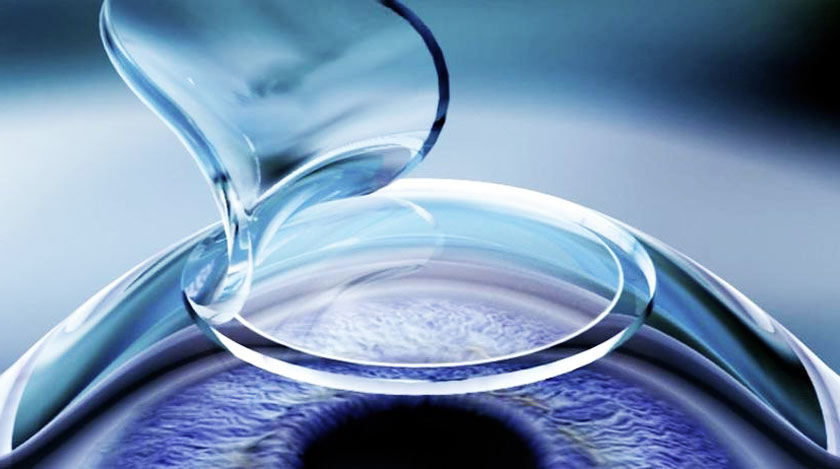
Photo: laser keratomillosis method (LASIK)
- Super LASIK - in contrast to the basic method, it is performed solely on the individual parameters of the patient, using special high-precision equipment, and therefore gives the best results. Currently, this method is used in all modern centers of vision correction, and almost supplanted the LASIK method.
- Femto Super LASIK - the method is in many respects similar to the procedure Super LASIK. The only difference is that the cornea is cut not by a microkerarator, but by a unique femto laser.
- Presby LASIK - this procedure is carried out taking into account age-related changes in vision and is recommended for use in patients after 40 years.
All of the above methods have their own characteristics, pros and cons. The choice of the method of exposure is carried out by a doctor, taking into account the individual characteristics of the patient. According to experts and patients - the best laser vision correction is carried out using the methods of FRK and LASIK.
Exams that click on the eye are eliminated, as this may speed up or lead to further bleeding. Prescribed heavy fluid intake. The fact is that the vast majority of these patients have a good evolution as long as they follow the medical guidance. The greatest risk is re-bleeding, which can occur in percentages, which range from 1 to 38% according to the literature. This risk is greater in people of the black race and leads to a deterioration in the visual prognosis.
Of course, this prediction is not directly related only to the size of the hypma, as well as the degree of damage to intraocular structures. Patients transferred to an eye injury and having a lesion in the posterior ocular segment represent the worst prognosis. Treatment is based on rest, prescribing topical anti-inflammatory drugs, and surgery in cases where there is no control of intraocular pressure or cornea soaked in blood. The use of antifibrinolytics is controversial in the literature.
Who is shown?
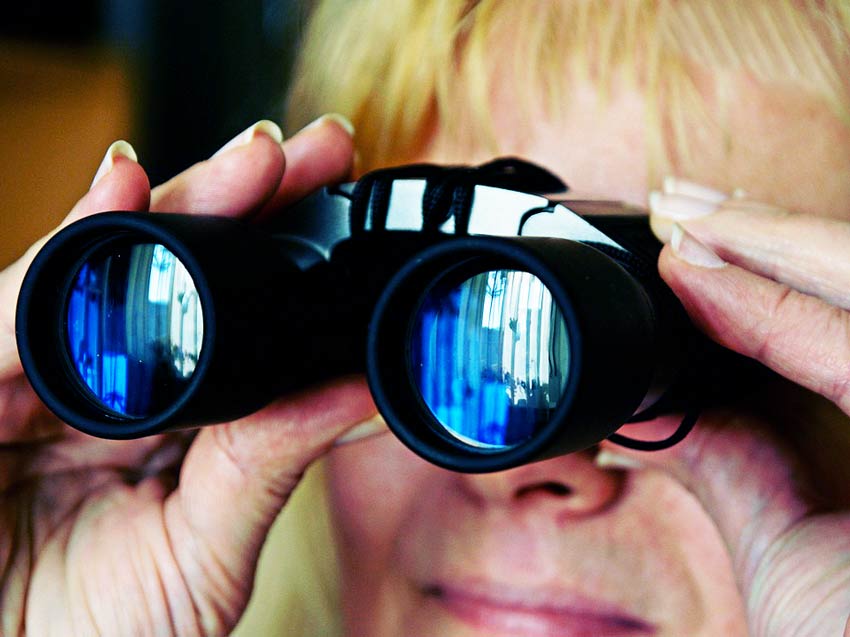
Photo: Who shows laser vision correction?
- myopia (myopia) ranging from -1 to - 13 diopters;
- hyperopia (farsightedness) with indications from + 1 to + 6 diopters;
- astigmatism (from +/- 1 to +/- 4 diopters).
In recent years, more and more patients are resorting specifically to laser vision correction. Why is this technique so popular? Many patients believe that glasses spoil their appearance and do not want to wear them. Correction of vision using contact lenses is also not an ideal solution to the problem, since some patients simply cannot get used to them.
Rebleeding has a higher frequency between the second and fifth day, when the clot retraction occurs, and in this sense the use of fibrinolytic agents is discussed. When evaluating patients with traumatic hypomedia, it is imperative to assess the state of the retina, which may be affected by trauma, and to have important implications for visual prognosis at an early or late stage.
The constant use of a computer and the amount of visual information require the use of a “class” in accordance with the highest level of compliance. Refractive procedures are also technological advances that make our daily lives more enjoyable.
The lenses often cause allergic reactions and provoke individual intolerance through direct contact with the surface of the eye. Therefore, correcting vision with a laser seems to be the ideal solution to deal with the problem in a short time. Before the operation, the patient should undergo a complete examination, only on the basis of his results, the ophthalmologist decides whether laser vision correction can be done.
Not to mention the importance of measuring intraocular pressure, which is fundamental to detection and prevention. Another picture that catches the attention of patients and doctors is cataracts. Preventing all of these cases focuses on quality of life. In the end, with increased survival of people, you can live longer and better.
With a balance and, above all, constant vigilance of our health, we contribute to a wide lifestyle with quality. Ophthalmologic evaluation is more than just a point exchange; it looks for data and facts that can prevent irreversible injuries, for example, for example.
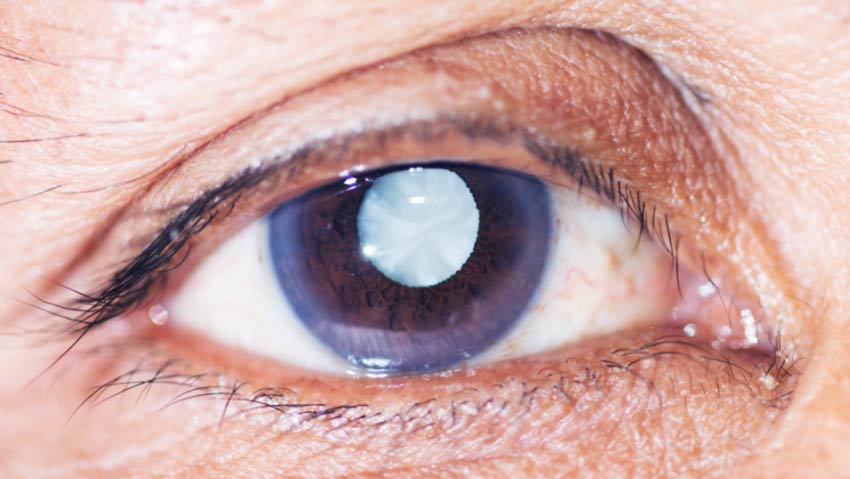
There is a list of conditions under which laser vision correction is prohibited. These include:
- progressive myopia;
- cataract;
- glaucoma;
- iridocyclitis;
- previously performed operations on the retina;
- inflammatory diseases of the organs of vision;
- corneal dystrophic changes;
- the period of pregnancy and breastfeeding;
- systemic diseases;
- severe diabetes mellitus;
- age up to 18 years;
- immunodeficiency states.
This is not a complete list of contraindications. Clarify possible limitations will help specialist - ophthalmologist after a comprehensive examination. Many experts advise a new effective drug.
Myopia is one of the most common problems with vision, so much so that it is one of the conditions that most affect people all over the world. In this task, the patient experiences difficulties with the sight of distant objects and sees that they are not focused. In some cases, this may reduce the quality of life of this person when the degree is high.
Since not everyone is getting used to their glasses or contact lenses or simply do not want to use them anymore, medicine has suggested a method that can solve this problem. Surgery to correct myopia, also called refractive surgery, is an ophthalmologic procedure that helps those suffering from this condition. In most cases, he is able to eliminate the degree, but his function basically minimizes it, in order to give a greater overview to the patient.
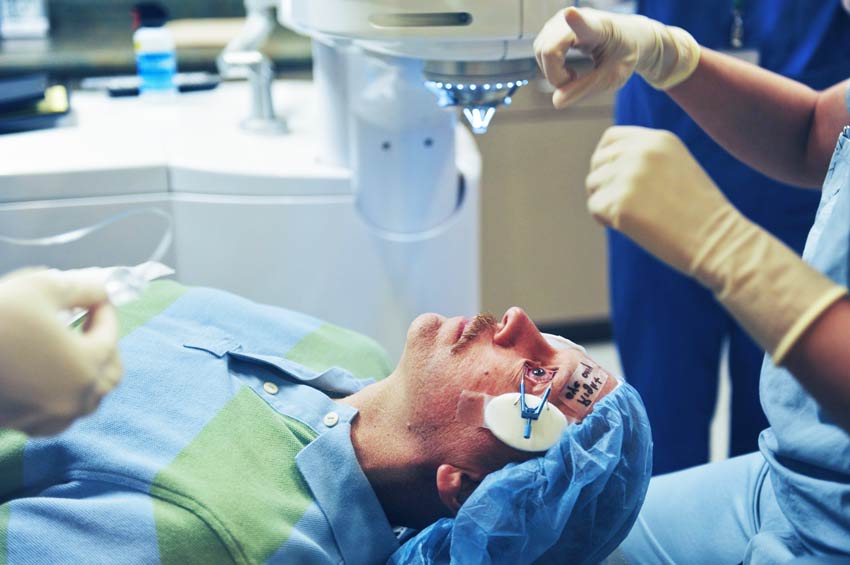
Photo: How does laser vision correction work?
The operation of laser vision correction requires advance preparation. The patient undergoes a comprehensive examination, passes the necessary tests and, in the absence of contraindications, receives a referral for the operation. A week before the upcoming intervention, you should stop wearing contact lenses, 48 hours before the procedure - to eliminate alcohol intake.
The method is relatively safe and shows good results for eye health. Thus, it is increasingly being sought by those who suffer from myopia and want to see better. In general, this is indicated for those who suffer from an ophthalmologic condition, but there are some rules. Although this is a surgery correction, refractive surgery cannot be performed by anyone, so some rules have been introduced to comply with the procedure. For example, children and adolescents are not the target audience for intervention.
Doctors do not recommend surgery at the age of 18, because until that age they have changes in the curvature of the cornea. The eye structure also develops, for example, the muscles supporting the eyeball, which is not fully formed in this range.
Before the operation, an anesthetic is instilled into the eye of the patient, waiting for a certain time, and then invited to the operating table. The area around the eyes is treated with an antiseptic solution. Next, an expander is inserted into the eye that prevents involuntary blinking. After that, the specialist can proceed to the procedure. Let's take a closer look at how laser vision correction is performed using different techniques.
Thus, the minimum age is 18 years, but some experts still indicate that people over the age of 21 have to undergo an operation for myopia. Although some patients crave surgery, it is always better to see a specialist first.
This is due to the fact that he will make a full assessment of the patient’s clinical condition and then indicate if there is a need for refractive surgery. In case they study whether he is an ideal candidate for this procedure. As said, there is also a minimum age for the operation, so many items are analyzed before you select an operation.
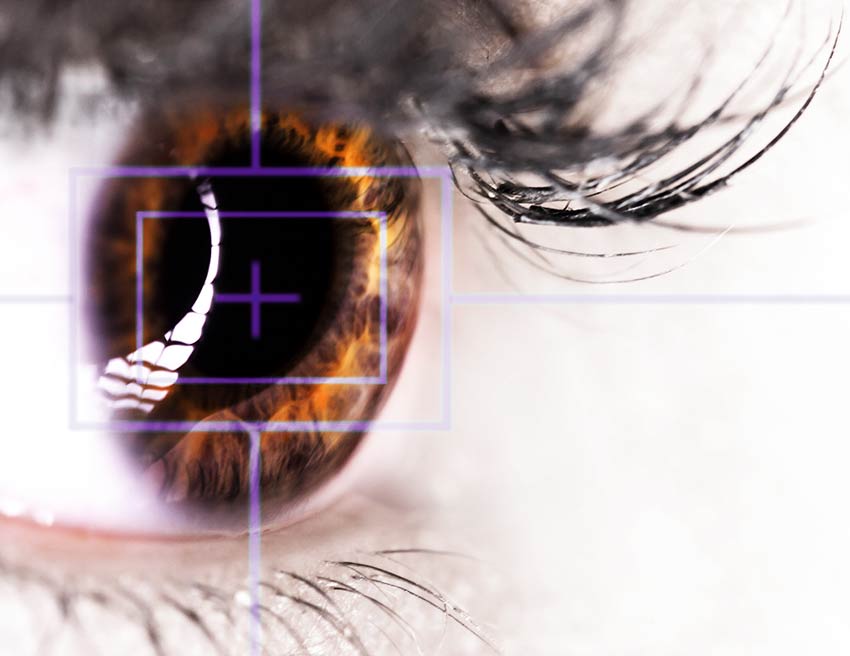
During the operation, a wide beam of an excimer laser is applied to the cornea of the eye. According to a pre-calculated individual program, the laser beam flattens the corneal epithelium due to the process of cold evaporation (ablation) and thus simulates a new surface.
The operation of myopia does not last long, because after a few minutes the doctor can perform the entire procedure. Therefore, after the intervention there is no need to be hospitalized. The whole procedure lasts about 20 minutes, when the ophthalmologist cuts the membrane that surrounds the cornea, and it hangs to facilitate healing in this region.
Since most procedures are performed using a laser, the correct correction is most appropriate. The laser helps align the cornea, so the image is focused. Finally, the doctor removes the membrane from the cornea. This is a fast and effective way for many people to improve their vision without using glasses or lenses.
Laser vision correction lasts only a few minutes, all this time the patient must lie still and look at one point. Upon completion of the procedure, drops are instilled into the eyes with antibacterial and anti-inflammatory effects and closed with a bandage.
If the treatment is carried out in a hospital, laser vision correction is carried out immediately on both eyes. After the procedure, the patient is under the supervision of doctors for another 3-4 days. If the operation is performed on an outpatient basis, then first make an adjustment on one eye, and after five days - on the other.
Among the main advantages of this procedure, we can highlight the best vision, elimination or reduction of postoperative discomfort, greater safety and high accuracy. With your painkiller eye, the doctor places the lid divider so that it does not blink. Then your eye will be immobilized, and the surgeon will use a femtosecond laser to create a protective flap on your cornea. Your doctor will schedule postoperative meetings and exams, where it is important that you attend.
- There are no cuts or needles, and this is a non-invasive procedure.
- Usually both eyes are treated on the same day, one at a time.
- It starts with the left eye, and then with the right eye.
- The procedure usually ends in about 20 minutes.
- Many people notice a significant improvement in vision almost immediately.
- You will receive postoperative instructions for your recovery process.
Immediately after the intervention, discomfort in the operated eyes, foreign body sensation, photophobia is possible. These manifestations disappear within a few hours. The recovery period takes 3 - 4 days, at this time the patient may feel soreness, therefore it is recommended to use painkillers.
After removal of the dressing, visual acuity is gradually restored and soon the patient can return to normal life. In the future, for 2 months, anti-inflammatory drops should be instilled into the eyes.
Not recommended for patients who perform laser refractive surgery after surgery. In these cases, we recommend that you bring the companion into a driving state. For example, patients who have previously undergone laser refractive surgery and patients who have undergone surgery on a diamond scalpel should be evaluated by a surgeon.
Is postoperative the same as lasik?
Yes, the postoperative period is very quiet, and the next day after returning with the doctor, the patient already performs most of the activities of his daily life.
Are postoperative eyes the same
Yes, eye drops are the same as in a regular lasik.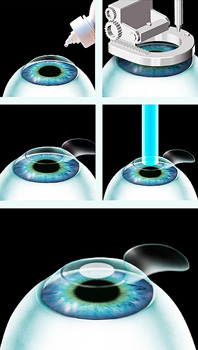
During the operation, using a special device (microkeratome), a flap is cut out from the surface layers of the cornea to provide access to the deeper layers. All parameters are pre-set in a computer program that provides the device.
Do these covenants fulfill this procedure?
No, only certified doctors. However, we have opportunities and various forms of payment for each case.
How do I leave the clinic
All our procedures are flexible, so the value of the investment made is compatible with your financial agenda.In addition, we are ready to hold consultations, examinations and possible legal proceedings on the same day. When you are nearsighted, you can get rid of your glasses with surgery. So which technique to choose? Is this surgical procedure safe?
Next, the flap turns to the side, and the laser beam evaporates corneal tissue, changing their curvature. At the end of the exposure to the laser beam, the flap is laid in its place and fixed without stitching due to the adhesive properties of the corneal collagen. Upon completion of the procedure, a soft contact lens is put on the eye, which performs the function of protecting the cornea. Take it off in a few days.
It is an eye disorder that changes vision from a distance. According to the National Union of Ophthalmologists, 39% of the French population is to some extent affected by this disorder. The image is formed in front of the retina, not the retina. As a rule, caused by excess corneal curvature, the myopic eye is considered “too long”.
To correct this lack of vision, a short-sighted person can compensate for wearing glasses or lenses. Today the lenses are of very good quality, they are very comfortable. They provide real eye comfort and respect the physiology of the eye, ”Pré Philippe Denis, president of the French Society of Ophthalmology, explains.
The first day after surgery, the patient spends in the hospital. If no complications arise, the next day he is sent home. The vision begins to recover within a few hours after the procedure and in the next 2 weeks it reaches the maximum level. During the recovery period, the patient must follow all medical recommendations and use drops with antibacterial and anti-inflammatory effects for 2-3 weeks.
After the operation, the patient will be instructed in detail what can and cannot be done after laser vision correction. How thoroughly all the recommendations will be carried out depends on the final result of the correction. In the future, the patient should be under the supervision of a specialist and be on a routine examination to the ophthalmologist 2 weeks, 3 and 6 months after surgery.
The rehabilitation period - what after the operation?

Are there any limitations after laser vision correction? Undoubtedly, after the intervention, the patient must comply with a number of requirements necessary for a quick, full recovery and prevent possible complications.
- In the first days after surgery, do not touch the eyes or rub the eyelids. This can lead to a shift in the cornea flap.
- It is not recommended to wash for several days after the intervention.
- After the procedure, PRK is allowed to wash after 3-4 days, when the bandage is removed from the eyes. After 1 week you can use cosmetics. After 2 weeks you can watch TV and drive a car.
- After the LASIK procedure, you should not touch your eyes, rub them, use cosmetics, hairspray or sprays for 2 weeks.
- It is not recommended to go to the swimming pool, bath or sauna for 3 months after laser vision correction.
- All patients who underwent surgery should exclude any factors that contribute to the increase in intraocular pressure and corneal edema. It is necessary to avoid long work at the computer and other high visual loads, to eliminate hard physical labor, homework associated with torso (washing floors, washing, etc.).
- For several months after the operation it is forbidden to engage in contact sports.
- During the recovery period, you should not drink large amounts of liquid. Alcohol intake is strictly prohibited.
Possible complications
As with any intervention, laser vision correction can sometimes lead to undesirable complications. This is due to inadequate preoperative preparation or inaccurately calculated parameters. If a patient complains of poor eyesight after laser correction, this may be a manifestation of a condition such as amblyopia (uncorrectable reduction in visual acuity). In addition, some complications may occur during surgery, immediately after it or in the late postoperative period. We list the possible complications:
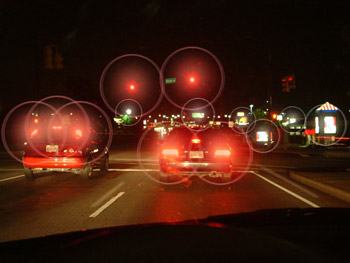
If a number of complications, such as slight corneal clouding, a “dry” eye, or bacterial keratitis can be eliminated with the help of medications, then some undesirable effects of the operation will require additional surgical intervention. These include: incomplete correction (when visual acuity is not fully restored), insufficient removal of the epithelium, or pronounced clouding of the cornea of the eye.

Photo: What will happen to the eyes in 10 years
Patients who decide on laser vision correction should understand that this method only deals with the consequences, but does not affect the causes of the disease. Therefore, over time, the effect of “grinding” by the laser may be weakened, and the patient will again have to return to the previous correction methods, that is, to glasses or contact lenses.
The eyeball is also subject to natural aging. With age, the state of the retina can change even after a qualitatively performed operation. Age problems or hormonal disorders (for example, during pregnancy or during menopause) can cause serious problems with the cornea. It is possible that another intervention will be needed and the corrective procedure will have to be repeated. Therefore, before you decide on a laser correction, you need to weigh the pros and cons.
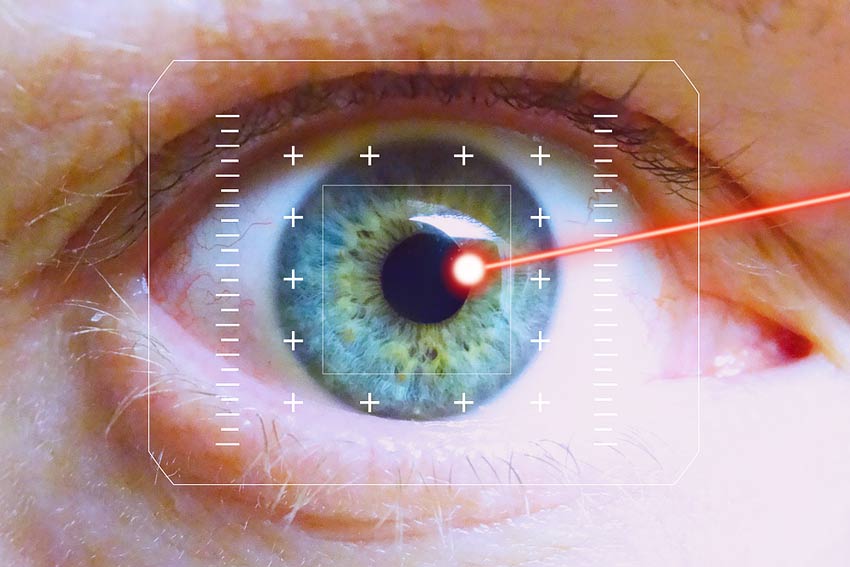
Photo: Pros of laser vision correction
- safety and painlessness;
- the ability to make simultaneous correction of both eyes;
- use for various visual impairments (myopia, hyperopia, astigmatism);
- Laser vision correction is performed for patients aged 18 to 55 years;
- the procedure is quick and in most cases on an outpatient basis;
- the recovery period is short; a few hours after the intervention, the patient can go home;
- predictable results and rapid recovery of vision;
- the ability to correct myopia or hyperopia of a high degree;
- stability of the result, which remains for many years.
Minuses
- some pain and discomfort after the procedure;
- the possibility of complications;
- risk of damage to the nerve endings and corneal epithelium;
- long-term use (for several months) of drugs (in the form of drops);
- some post operation restrictions associated with working at a computer or household duties;
- as the body ages, vision may weaken again;
- quite high cost of laser correction.
How much does laser vision correction cost? The cost of the operation is quite high. We give the average prices for the procedure:
- LASIK surgery - from 27,000 rubles;
- Correction using the PRK method - from 35,000 rubles;
- The operation according to the FEMTO LASIK method - from 55,000 rubles.
All prices for the microsurgical procedure are for one eye.
Ocular pathologies today are found in every second. A person with absolutely healthy visual organs is extremely difficult to find.
It is important to undergo diagnosis and start therapy. Otherwise, there is a risk of losing sight forever.
One of the most common ophthalmologic diseases is myopia. At the same time, the eye is lengthened, and the rays of light focus incorrectly on the retina. The image is formed in front of the retina, and not on it, as it should be in a healthy eye.
As a result, a person sees poorly into the distance. The picture is blurred with distance.
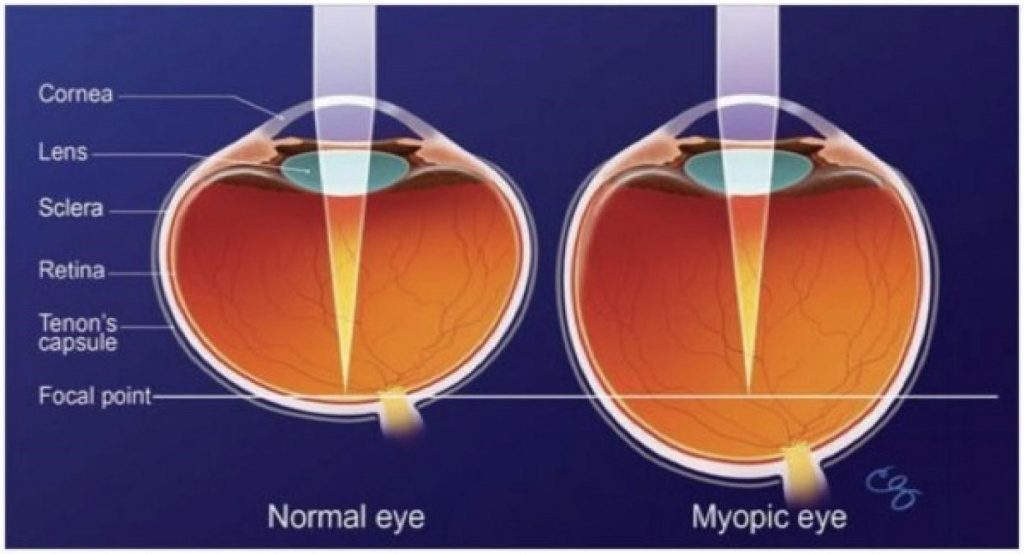
You can get rid of myopia forever only with the help of eye surgery. The price of such treatment in Moscow depends on the reputation of the clinic and the experience of the ophthalmosurgeon.
- Moscow Eye Clinic;
- IRI GB them. Helmholtz;
- MNTK them. S.N. Fedorov;
- Ophthalmological center "Vision";
- Eye surgery center on Mira Avenue.
Moscow Eye Clinic (CIM)
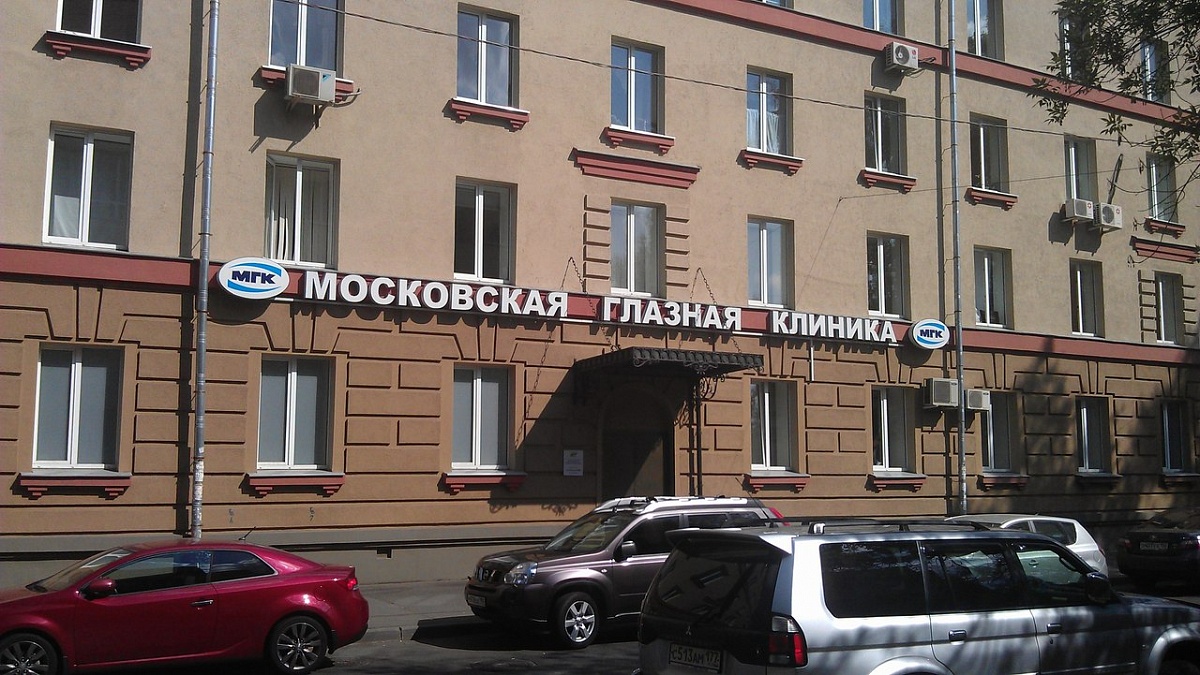
The doctors of this medical center deal with all areas of ophthalmological ailments. One of the leading industries is eye surgery.
Patients receive quality service without long queues and at reasonable prices for the capital.
If patients with complicated cases are treated with MSD, the consultation is conducted by the teachers of the best Moscow ophthalmological universities.
At the hospital, myopia is diagnosed at all stages of its manifestation. Upon reaching the age of 18, the ophthalmologist advises laser correction, which will relieve the patient from the illness forever.
This medical center uses the latest equipment, and applies modern developments in the treatment of myopia.
Pathology with a deviation of -15 D is successfully eliminated with a laser. Patients whose degree of impairment is greater than -15 D, advises to conduct microsurgery and install a phakic lens.
Important: The cost of the operation for 1 eye is 26,000 rubles, for both - 52,000 rubles.
The following ophthalmologists work at the Moscow Eye Clinic:
- Sergey Aleksandrovich Tsvetkov (founder);
- Natalia Ivanovna Fomenko (deputy head physician);
- Yuriy Borisovich Solominsky (MD, Professor);
- Svetlana Gavrilovna Chernysheva (MD, Professor) and others.
In MGK practice treatment of myopia according to Bates. Such methods have proven to be effective in many patients whose vision has been greatly improved thanks to an individually selected therapeutic plan.
IRI GB them. Helmholtz

This clinic is considered the largest in Moscow. It develops and exists thanks to the director - V.V. Neroevu. He also heads the department of eye diseases at the medical institute of the capital.
In the clinic to them. Helmholtz successfully operating the most complex cases of myopia. It treats myopia complicated by astigmatism, strabismus, glaucoma, etc.
Experienced ophthalmologists will advise when and how best to perform the operation. If the patient needs some time after the therapy to be in the hospital, he will be provided with the necessary care.
Important: The price of laser correction of one eye varies from 38,000 to 40,000 rubles. The cost depends on the degree of pathology.
The medical composition of the clinic includes:
- 17 professors with experience of over 20 years;
- 39 doctors of science;
- 88 candidates for the doctor of science;
- 5 honored workers of science;
- 11 recognized doctors of the Russian Federation.
Referring to the Helmholtz clinic, the patient can be sure that he will be relieved of myopia forever, and the operation itself will pass without complications.
MNTK them. S.N. Federov
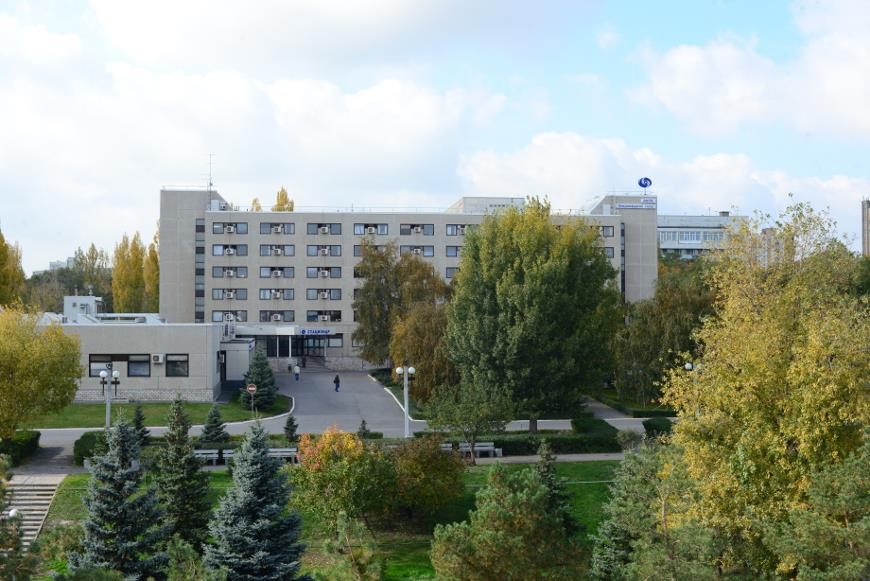
The clinic has been operating since 1986. Its founder was the famous ophthalmologist Svyatoslav Nikolaevich Fedorov. The motto of this medical institution was the famous words of its founder: “Beautiful eyes for everyone”.
MNTK them. S.N. Fedorov is not only a successful ophthalmologic clinic, but also a research and development center. That is why here they carry out operations according to author's methods developed by professors and honored oculists of the country.
Eye microsurgery is the main direction of this medical institution. More than a third of Moscow residents are served here, since they trust the experience and professionalism of ophthalmologists.
Important: Prices for laser correction of myopia range from 20,000 to 50,000 rubles per eye.
Before the operation, the ophthalmologist performs a comprehensive diagnosis of the patient:
- determines the degree of development of the pathology;
- identifies comorbidities;
- get acquainted with the individual characteristics of the patient.
Ophthalmological center "Vision"

Vision in Moscow
Eye clinic "Vision" is young. She has been working since 2005. However, despite his young age, this medical center managed to gain the trust and recognition of not only capital residents, but also patients from remote corners of the Russian Federation.
Ophthalmologic center is a multidisciplinary.
There are tremendous advances in the treatment of myopia. Experienced ophthalmologists with experience of over 20 years successfully carry out laser correction and are engaged in eye microsurgery in especially difficult cases.
Before surgery, the doctor must conduct a full examination of the patient. Only the product of all diagnostic manipulations resolves the question of the type of laser correction or the complete replacement of the lens with an IOL.
The clinic is managed by Boris Karlovich Gorodetsky. The ophthalmologist has extensive experience in complex operations. He helped hundreds of people across Russia gain 100% of their eyesight.
In Moscow, the treatment of myopia according to the Avetisov method is practiced in the Vision. This method of therapy was a salvation for many patients with advanced stages of the disease.
Important: The cost of the operation on one eye is 27,000-56,000 rubles.
In the ophthalmological center "Vision" successfully treat myopia for over 15 years. Having decided to carry out laser correction, you can safely contact this medical institution.
Eye Surgery Center on Prospekt Mira
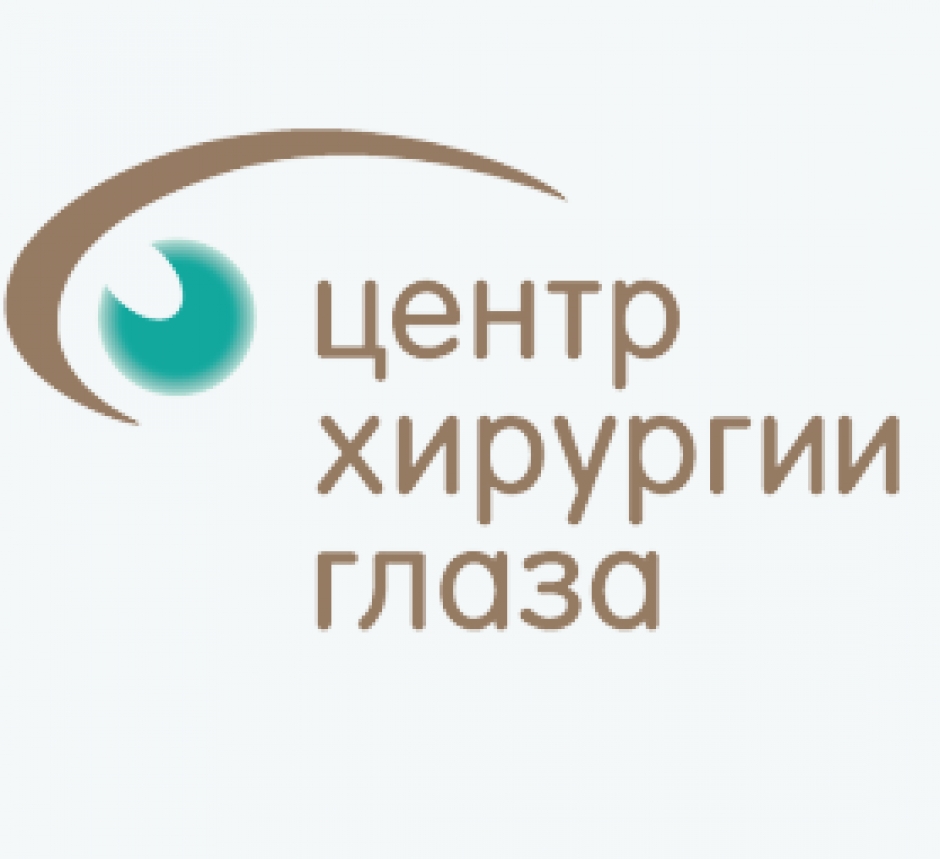
This clinic is multidisciplinary. It employs highly specialized ophthalmologists who also specialize in myopia.
The operation is carried out by highly skilled ophthalmosurgeons who have experience and work experience of more than 20 years.
For each patient practiced an individual approach. The survey aims to identify the root causes of myopia, which can be hidden in:
- abnormal development of the eyeballs;
- neoplasms in the brain;
- hypodynamia;
- head injuries;
- genetic predisposition, etc.
Treatment of myopia in Moscow is a costly business. However, in the center of eye surgery, patients find the high professionalism of doctors in combination with reasonable prices.
- In contact with 0
- Google+ 0
- OK 0
- Facebook 0



